Thoughts and My Essay, "A Sub, a Sub! My Kingdom for a Sub on Twitch, my Lord!"

There has always been something in me that wanted to try to know where I am in humanities history. Pause. What do I mean by that? Take, for example, the way I try my best to perceive knowledge itself. Thousands of years ago, the ancient Greeks laid the foundations of Western thought, developing ideas about democracy, ethics, and reason that still run the show today. Later, the Enlightenment brought about the age of reason and individual rights and now, in the modern age, we live within these ancient guard rails, seemingly unaware of their influence yet still existing, learning, and failing only to try again within them.
How I personally get there is by reading and researching areas of interest to further contextualize myself in the long arc of all things that make up my life personally, be it economics, writing, literature, novels, or general society, which all, in their unique ways, contribute to the whole. Then, I try my best to write about it and connect the dots. Now, why do this? Well, at its core, this kind of work helps me contribute to the greater-whole, be it an essay, a poem, a short story, or whatever. Seeing that I write, it's only natural that I would contribute via that medium to the best of my ability and thus write what interests me rather than what is a slog.
There's no end to this work, and that, to me, at least, is good. Believing one can know “everything" goes entirely against masters like one of my favorites, Montaigne, French Renaissance philosopher, essayist, and statesman, who iterates that the feat is impossible. "Nothing is so firmly believed as what we least know," highlighting the paradox that our most potent convictions often concern matters beyond our comprehension. There is also the fabled tattoo the late Anthony Bourdain had, stating "I suspend judgment" or "I am certain of nothing” where he explained that this was Montaigne's personal motto. This is terrifying as it stresses that we never truly have control (if you believe knowledge is a mechanism of control), which may be frustrating. For me, though, it's liberating as it means I am free to experience and learn whatever I please and, hopefully, end up knowing more about the world and myself within it in the present time to then share as best I can.
It also leads me to some pretty dark places, especially when considering systems of control, which is directly connected to the essay “A Sub, a Sub! My Kingdom for a Sub on Twitch, my Lord!” I won’t get too far into it, but simply put, the essay explores Twitch's hierarchical and feudal-like structure and the gaming industry, drawing parallels to medieval feudalism and similarities.
A Sub, a Sub! My Kingdom for a Sub on Twitch, my Lord!
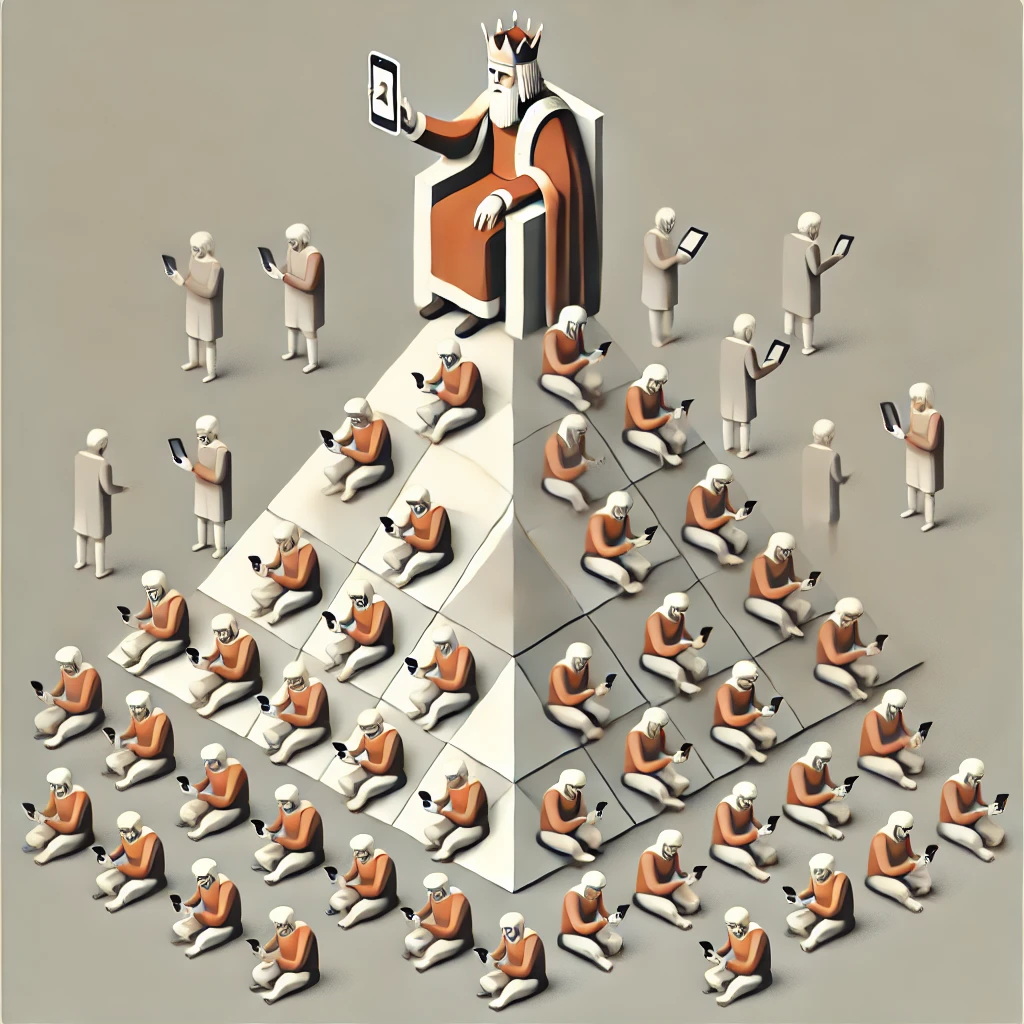
If you’re anything like me, you may find yourself increasingly needing to be “entertained” by something. Working from home as 26% of U.S. employees did in 2022 (36.2 million American employees are expected to be working remotely by 2025), I always seem to have some form of media or content spewing from somewhere into at least one of my senses: sad piano via Spotify, a tea tree infused air diffuser belching forth, an old foot massager under my desk, and almost always some Youtube or Twitch streaming in the background while I work. Most days, when I make lunch from a string of saved 20-second TikTok video recipes, something is always playing a podcast or broadcasting a video game.
Yikes, writing that all down and reading it over really tells me I need to work on that…
And yet, fully aware of this existential crutch, unsure if I’m even enjoying any of it or connecting with anyone on the other side of the screen, I still make no effort - most of the time - to turn everything off. Nothing terrible would happen to me except the sound of silence if I did embrace it. Maybe I’d even think of something outside of the network I’ve affixed myself in that would make me realize how insane my lifestyle was. Because it is a lifestyle, or at least a past time shared with 2.78 million concurrent viewers on Twitch and nine million Twitch streamers unable to help themselves.

The appeal of platforms like YouTube and Twitch appears rooted in their ability to create genuine community comfort side by side always addicting video games. As inherently tribal beings, humans are driven to maintain close connections with groups they can rely on for various needs: learning new skills, sharing stories, finding companionship, and establishing status. On Twitch longer-term subscribers gain increased recognition from both streamers and fellow community members. The platform reinforces these connections through exclusive emoticons and badges, which create a distinct social language within these micro-online communities.
This community dynamic intersects with the content these platforms primarily showcase: video games. Popular streamers typically center their content around engaging, competitive, and perpetually evolving digital worlds. This relationship between entertainment and community bears a striking parallel to historical social structures, where individual kingdoms and communities were similarly bound by shared experiences (not always centered around entertainment but to survive and keep said kingdom running and alive) that served both to engage and to influence their participants to keep the ship running. One might observe that today's global gaming industry, valued at around $300 billion, operates within a transformed version of the medieval feudal system, where streamers serve as modern-day lords and providers.
Which is where I want to focus on today’s relatively untouchable video game assortment of corporations and their live-streaming subsidiaries, exponentially growing yearly by the billions and connecting it to the history of the feudal system and all who ruled the lands before.
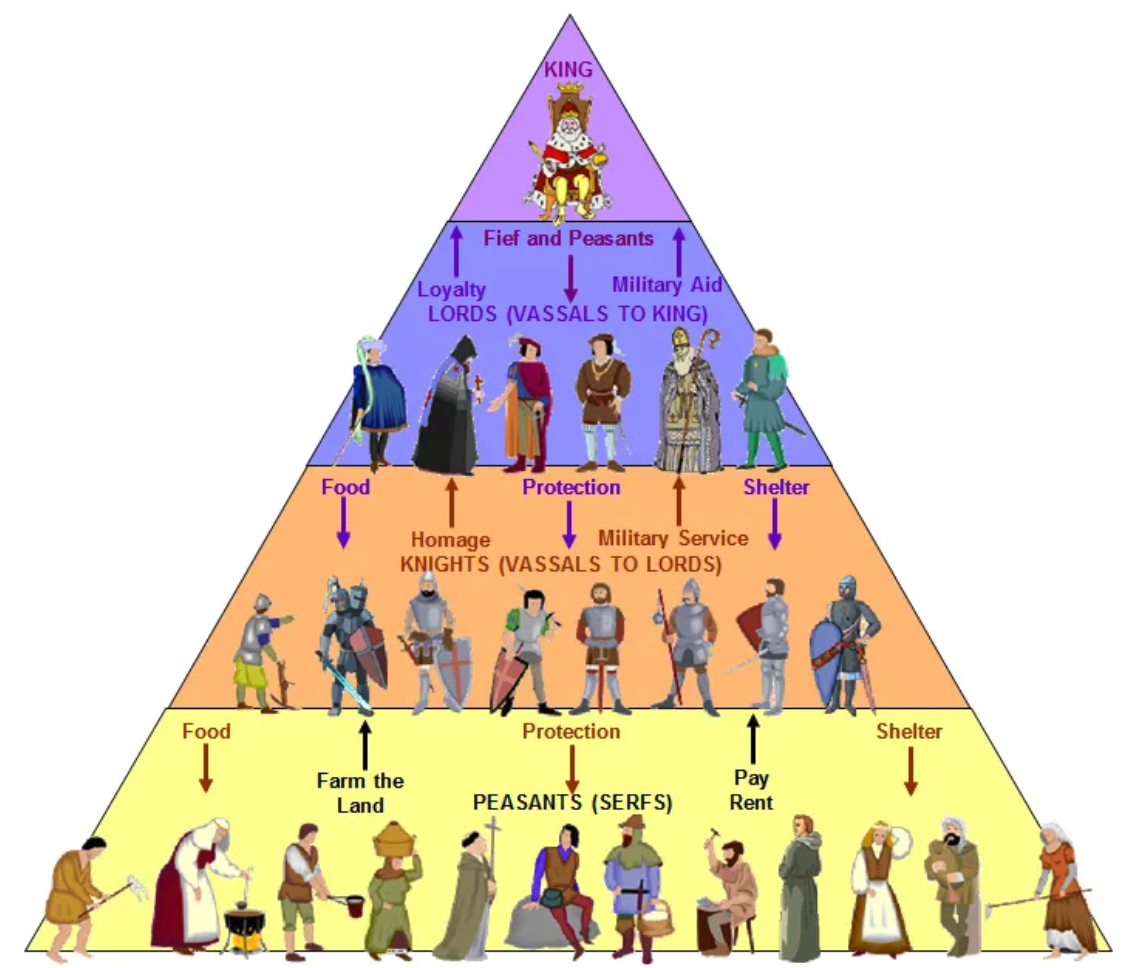
What is Feudalism?
You probably know what Feudalism looks like if you’ve seen Monty Python and the Holy Grail or Braveheart. In a more formal format, Feudalism was a socio-economic and political system that dominated medieval Europe, particularly during the 9th to 15th centuries. The system was hierarchical, organized like a pyramid (see above), with different levels of obligation and privilege. Remember this when we transition into comparing and contrasting Twitch’s current system. At the apex of the feudal pyramid was the monarch, usually a king or queen, who technically owned all the land in the realm.
Below the monarch were the lords and nobles, which included various ranks such as dukes, earls, and barons. The monarch granted these nobles large tracts of land in exchange for military service and loyalty. One level down was the vassals, lesser nobles or knights, who pledged service to the higher-ranking nobles in return for protection and smaller land holdings.
Feel like giving “So You've Decided to Become Isolated & Weird Newsletter” to a friend, family loved one? You can! Go to the Substack publication's homepage you want to gift and add "/gift" to the end of the URL.
At the bottom of the pyramid were the peasants and serfs who worked the land. They had the least power and freedom (if you’ve ever been on Twitch, you’ll see that viewers have little or no sway regarding what the streamer does), as they were often bound to the land they worked on. You could perceive this concept in terms of Twitch as a person’s commitment to the streamer and their community over time (see Nick Merc’s “Spartans” or any other legion of followers popular streamers decree their viewers). Feudalism, ultimately, was a structured system where land was exchanged for service and protection (community), creating a network of obligations that kept the society functioning or, in the case of Twitch, kept the platform and the streamers running. Overall, each level of the feudal pyramid had specific roles and responsibilities, contributing to the entire system's stability or instability.
What is the Hierarchy of Twitch?
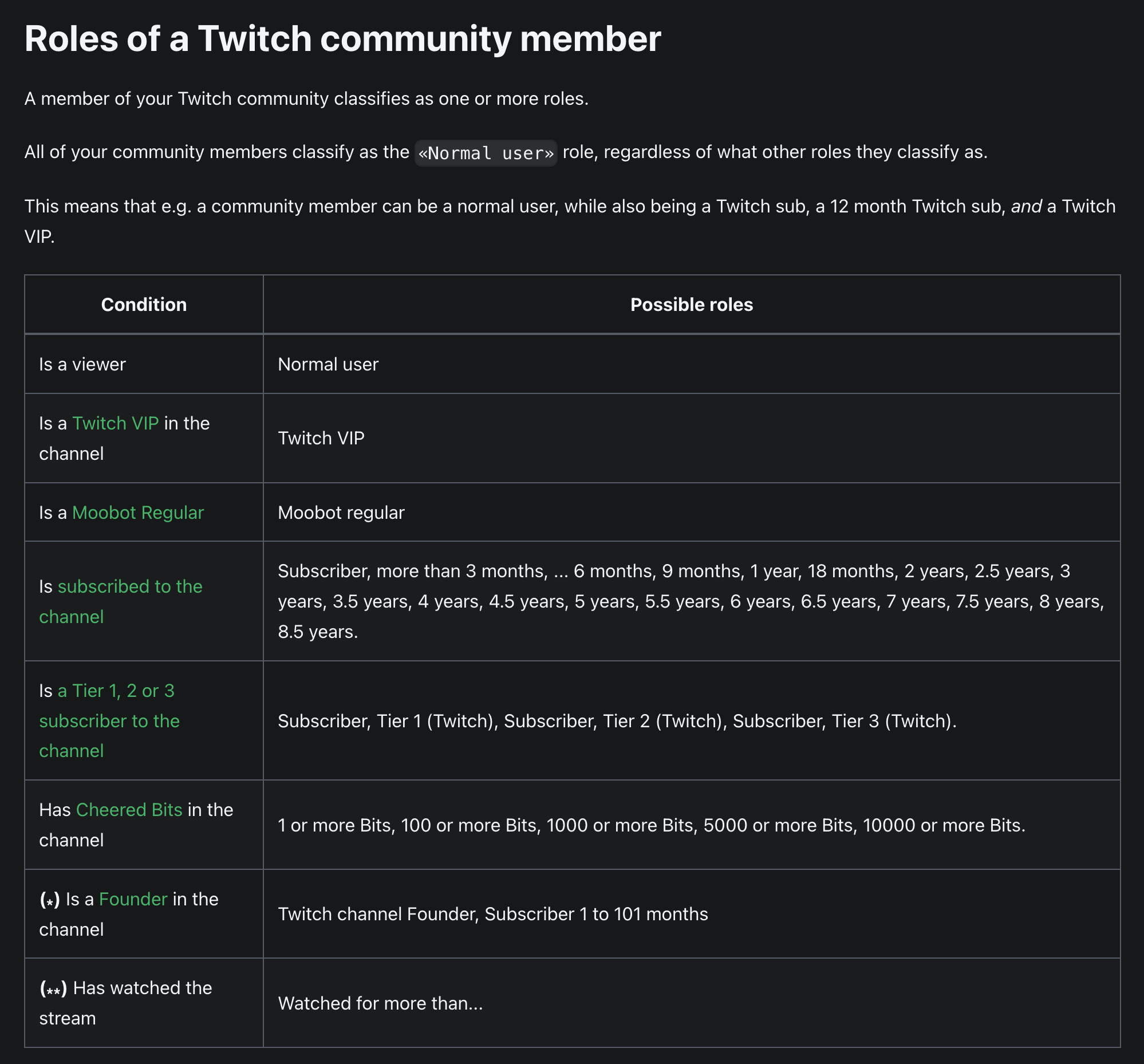
Twitch operates on a somewhat different business model compared to feudalism, but a hierarchical structure can be identified understanding how it facilitates content creation, revenue generation, community building, and more. Their CEOs, Emmet Shear, Dan Clancy, and Micael Seibel, are obviously at the top of this hierarchy, providing the virtual space where all gaming and streaming activities occur. They set the rules, take a share of the revenue, and provide the infrastructure for streaming and community engagement. Think of them as the Kings of Twitch, sitting pretty at the top of this feudal pyramid with a watchful eye on their kingdom.
The high-profile streamers and content creators are directly under them, comparable to the nobles in the feudal system. Individuals like Nick Mercs, Tarik Ironmouse, and Amouranth are some of the most popular streamers on their platform. They often have exclusive partnership agreements with Twitch and generate major sums of income through subscriptions, advertisements, and donations. They carry considerable influence within and outside the platform, often leveraging their brand into other ventures, leading to even more money, connections, and promotions with games similar to nobles and their sway around the kingdom.

Interesting side note: Twitch's CEO, Dan Clancy, was recently seen “disgruntled” when famed ishowspeed won a Streamy award a few weeks ago. For some context, Twitch banned ishowspeed in 2021 for comments made during another stream's live show, which shows another striking similarity to comparisons between the laws of feudalism and the realm of Twitch. This isn’t to argue either side but to point out the similarities. Read the full report of the ban here.
Next up are affiliates. These streamers meet specific minimum requirements for Twitch sets to monetize their streams through subscriptions and ads but have less extensive reach or as many privileges as partnered streamers. They could be compared to vassals in feudalism, bound by fewer obligations but also afforded fewer protections and less "land" in the form of visibility and algorithmic favor.
At the base level are the viewers and non-affiliate streamers, who might be seen as the peasants and serfs of this ecosystem (that’s me!). Non-affiliate streamers broadcast without direct monetization options from Twitch, essentially working the "land" without owning any part. Viewers, on the other hand, form the community, contribute donations, and subscribe to channels, thus generating the revenue that sustains the entire structure. Think of this as a kind of tax in feudalism who have little or no power regarding Twitch, the platform, and the streamers, but remain the most crucial aspect to ensure the entire operation runs smoothly.
Now, Who is God in This Scenario?
The concept of divine right in feudalism more often than not played a role when selecting a king or a king, positing that their authority was God-given rather than voted upon. This divine mandate theoretically meant that the king was accountable to God for his actions and the well-being of his subjects. Whether this was true or not, this often legitimized the king's rule and dissuaded challenges to his authority. We still see that today with President-elect Trump and other religious groups claiming God moved Trump’s head during one of two assassination attempts. Naturally, this also placed the expectation to rule justly and follow religious principles, regardless of whether these entities of power believed them which is another essay entirely.

In Twitch’s case, try and view “God” as the gaming studios of popular games viewed on Twitch. Without anything to do per se, most platforms and streamers would be playing music or “just chatting” in more provocative ways than not to get viewers. There is also the whole whispering thing. As you can see in the metrics below, video games and their players make up most of their viewers.
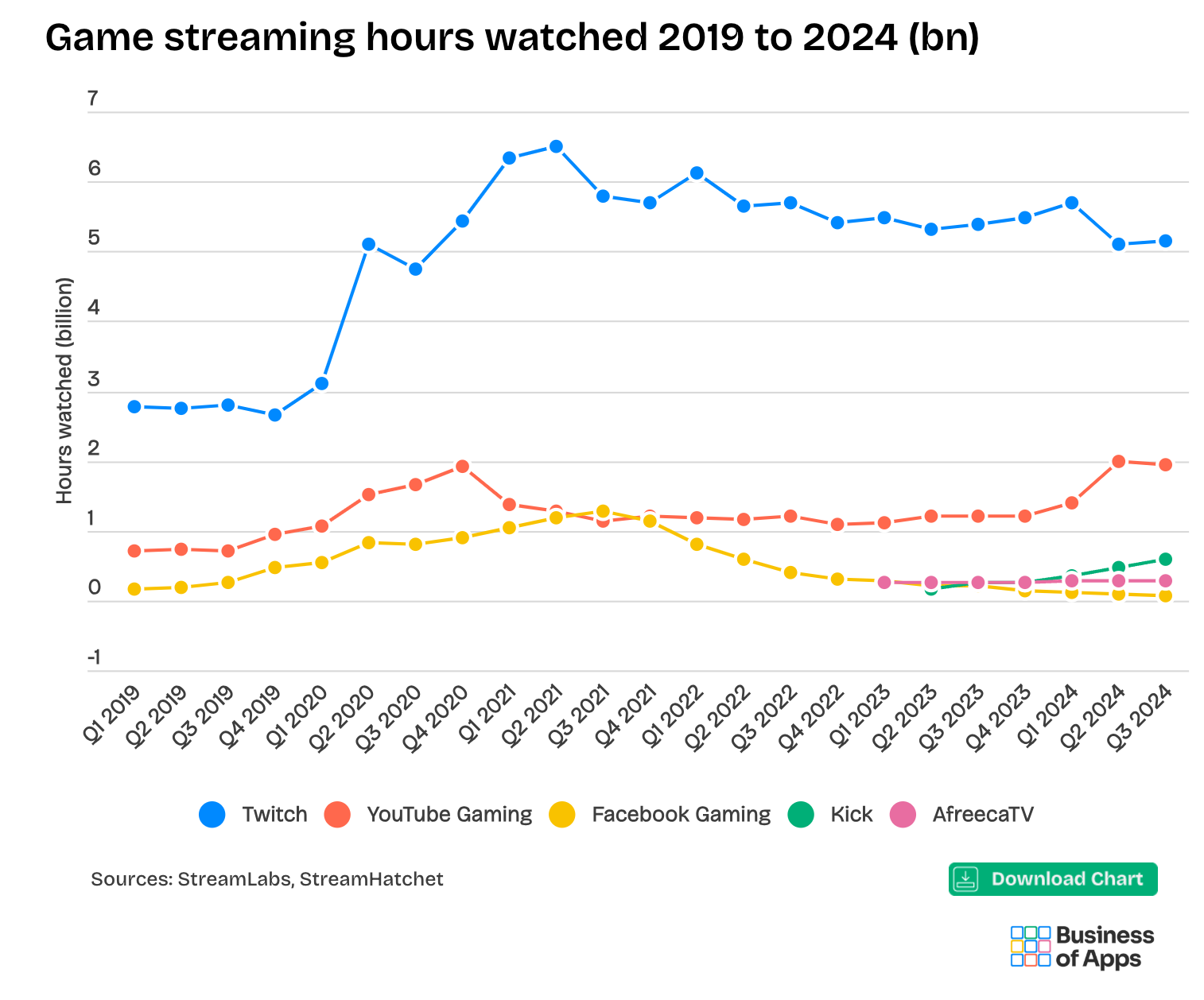
In 2023, Epic Games, Electronic Arts, Activision and Blizzard Entertainment, Nintendo, Tencent, Microsoft, and Sony are the five biggest gaming studios. View their revenues here, but let’s say it’s a lot, and for good reason. They hold all the power, and ultimately, however bad the game is (and some of them are bad), Twitch as a platform and their streamers are forced to play them, comment on them, and have their viewers watch, eerily similar to the psychology of the King (Twitch CEOs), lords (premier streamers), knights (affiliates), and the peasants (the viewers). In some way, it reminds me of scenes of today where King Charles was waving to a crowd of people all watching to see him and do whatever King Charles did.
In many cases, Twitch and its streamers are a place for solidarity, entertainment, and community. I’ll be the first one to say there is nothing wrong with that as I’m watching Shroud play the newly released Starfield steeped in my own hypocrisy. But what worries me most is the guise of community wrapped in old models of feudalism that have historically proven to rely on the lowest level of people (serfs and viewers) not truly understanding the system they are contributing to and getting less than they put in. Twitch dominates the live streaming landscape, capturing 73% of user share, and is estimated to generate around $2.5 billion annually. In just the second quarter of 2023, the platform raked in approximately $29.95 million from in-app purchases alone. Yet, none of these profits are shared with 92,300 concurrent channels and 2.46 million average concurrent viewers. And the time viewers spend on these platforms, which is in the billions well, they’ll never get that back either.
How a platform would share these profits with viewers while ensuring streamers of game content is another essay. Still, in the world of Web 3, ongoing efforts in decentralization, and crypto and blockchain games, Twitch may have to adapt or die as feudalism did hundreds of years ago if a competitor perhaps figures that out.

So You've Decided to Become Isolated & Weird Newsletter is a reader-supported publication. To receive new posts and support my work, consider becoming a free or paid subscriber.
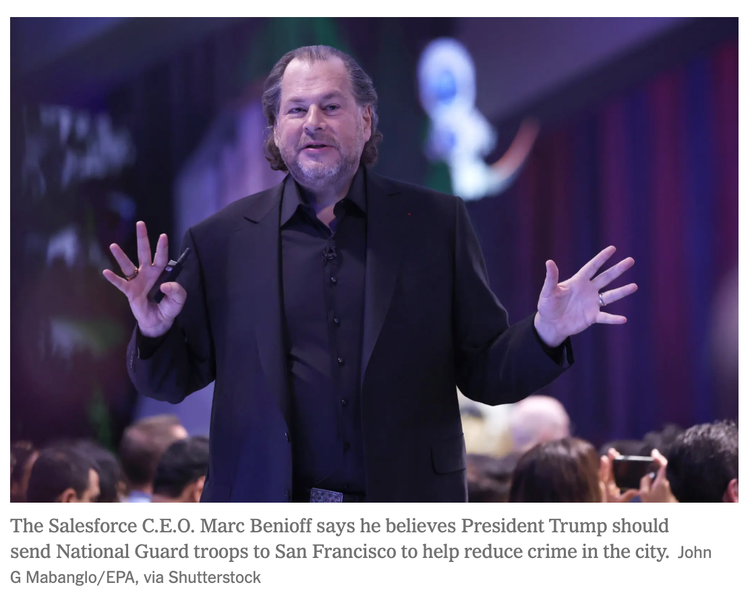




Member discussion